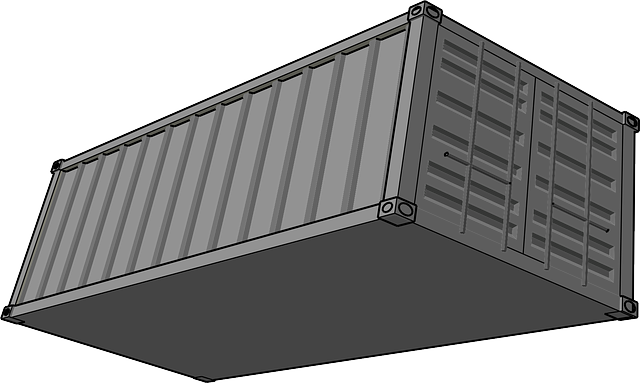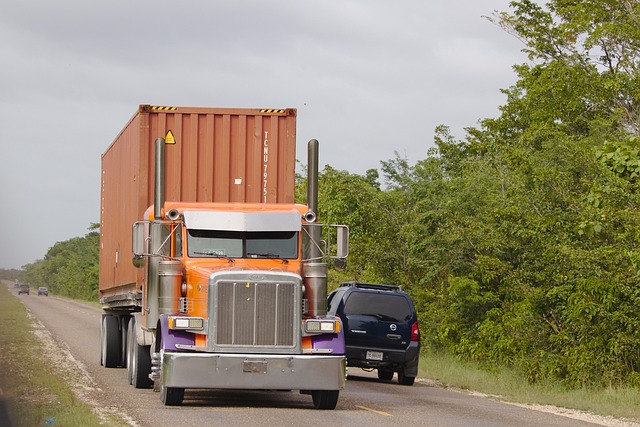For startups in logistics and transportation, cargo insurance is a crucial risk management tool. By understanding policy types, coverage limits, and deductibles, businesses can choose policies matching their specific needs based on the nature of goods transported. Comprehensive Cargo Insurance covers physical damage, loss, theft, and natural disasters, while Specific Peril Insurance addresses unique risks like rust or moisture for specialized cargoes. Securing adequate cargo insurance protects startups' investments, safeguards against financial losses, and builds reliability in a competitive sector.
Starting a cargo insurance startup requires understanding key coverage types designed to safeguard goods during transit, loading/unloading, and storage. This comprehensive guide deciphers essential cargo insurance policies for new operators, from basic in-transit protection to specialized coverage for high-value or hazardous materials. Learn about risk analysis, liability insurance, and strategic policy customization to navigate the landscape effectively, ensuring your startup’s success in the competitive cargo insurance market.
Understanding Cargo Insurance: Basics for Startups

For startups venturing into logistics and transportation, understanding Cargo Insurance is a crucial step in ensuring smooth operations and financial protection. This type of insurance covers goods during transit, shielding businesses from potential losses due to damage or theft. Startups should familiarize themselves with the basic principles, including policy types, coverage limits, and deductibles. By knowing what’s included and what’s excluded, operators can make informed decisions when choosing a policy that aligns with their business needs.
When considering cargo insurance for startups, it’s essential to evaluate the nature of goods being transported. Different industries have varying requirements; perishable items need specific coverage, as do high-value or hazardous materials. Insurers offer various options, from comprehensive protection for entire shipments to more tailored policies focusing on particular risks. Understanding these nuances enables startups to secure appropriate coverage, offering peace of mind and financial security in the competitive world of cargo transportation.
– Definition and significance of cargo insurance for new operators

For new operators entering the shipping and logistics industry, understanding cargo insurance is a crucial step in mitigating risks and ensuring smooth business operations. Cargo insurance, also known as freight insurance, provides financial protection against potential losses or damages to goods during transit. This type of insurance is essential for startups as it shields them from significant financial burdens that may arise from unforeseen circumstances like accidents, natural disasters, or theft. By purchasing cargo insurance, new operators can have peace of mind, knowing their investments are secured.
When starting a business in the logistics sector, cargo insurance offers a safety net, covering various risks specific to the transportation of goods. It includes protection for physical damage, loss, or delay in delivery, which are common challenges faced by operators. This insurance is particularly vital during the initial stages when startups are establishing their operations and building a reputation for reliability and security. With proper cargo insurance coverage, new operators can confidently expand their services, knowing they have a robust risk management strategy in place.
– Types of cargo insurance policies and their functionalities

Cargo insurance is a critical aspect for startups in the logistics and transportation sector, providing financial protection against potential losses or damages during the movement of goods. There are several types of cargo insurance policies tailored to cater to different needs of these new operators. One of the most common types is ‘Comprehensive Cargo Insurance’, which offers all-encompassing coverage for physical damage or loss of goods while in transit, including cover for theft, natural disasters, and accidental damage. This policy is ideal for startups looking for broad protection across various shipping modes.
For specialized cargo, ‘Specific Peril Insurance’ is designed to cover specific risks associated with particular types of goods. This could include insurance against risks like rust, moisture, or contamination, which are common in the transportation of sensitive items like pharmaceuticals or food products. Such policies are particularly useful for startups specializing in niche cargoes, ensuring they have tailored protection that meets their unique operational challenges.
Cargo Insurance for Startups: Common Coverage Needs

Starting a startup in the logistics or shipping industry? Cargo insurance is a crucial component for any new operator to understand and secure. As a startup, your focus may be on innovation and growth, but unforeseen events can disrupt operations and impact your bottom line. That’s where cargo insurance comes in—it provides financial protection against physical damage, loss, or theft during transit.
For startups, common coverage needs include open-mover cargo insurance, which covers goods in bulk or non-standard containers, and specialized coverage for high-value or delicate items. Understanding the specific risks associated with your shipping processes is essential when selecting a policy. This includes factoring in the type of goods you transport, the routes taken, and any potential hazards during transit. By ensuring adequate cargo insurance, startups can mitigate risks, maintain operational continuity, and protect their investment in inventory.
For startups venturing into the world of cargo transportation, understanding essential coverage types is navigating a crucial labyrinth. By familiarizing themselves with cargo insurance, new operators can protect their investments and ensure smooth business operations. The article has shed light on the significance of various cargo insurance policies tailored to meet specific startup needs, empowering them to make informed decisions in this vital aspect of their ventures. In terms of securing their future, knowing these coverage options is a game-changer for any aspiring business in the logistics sector.
